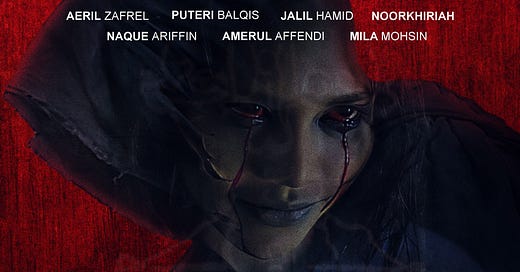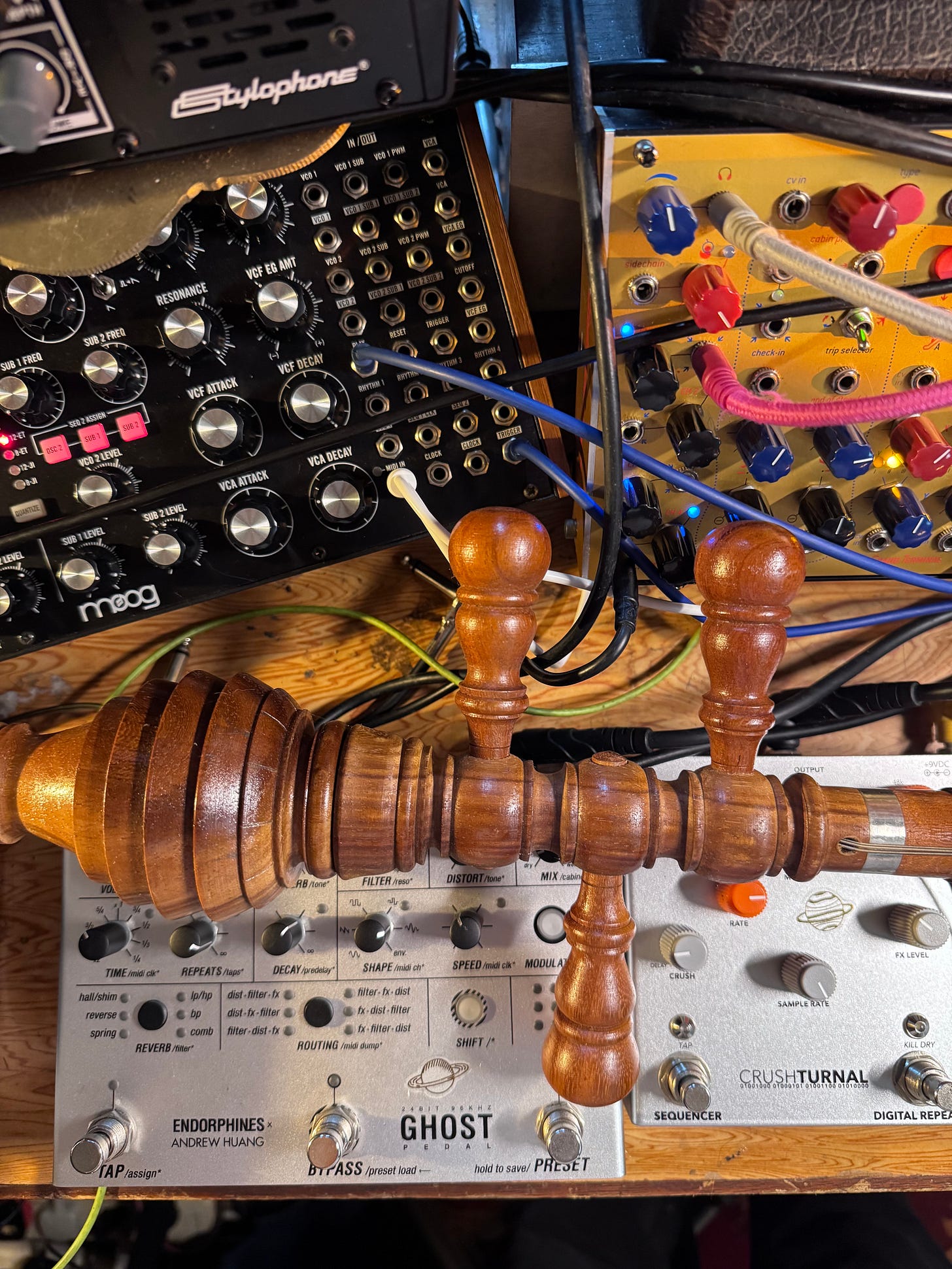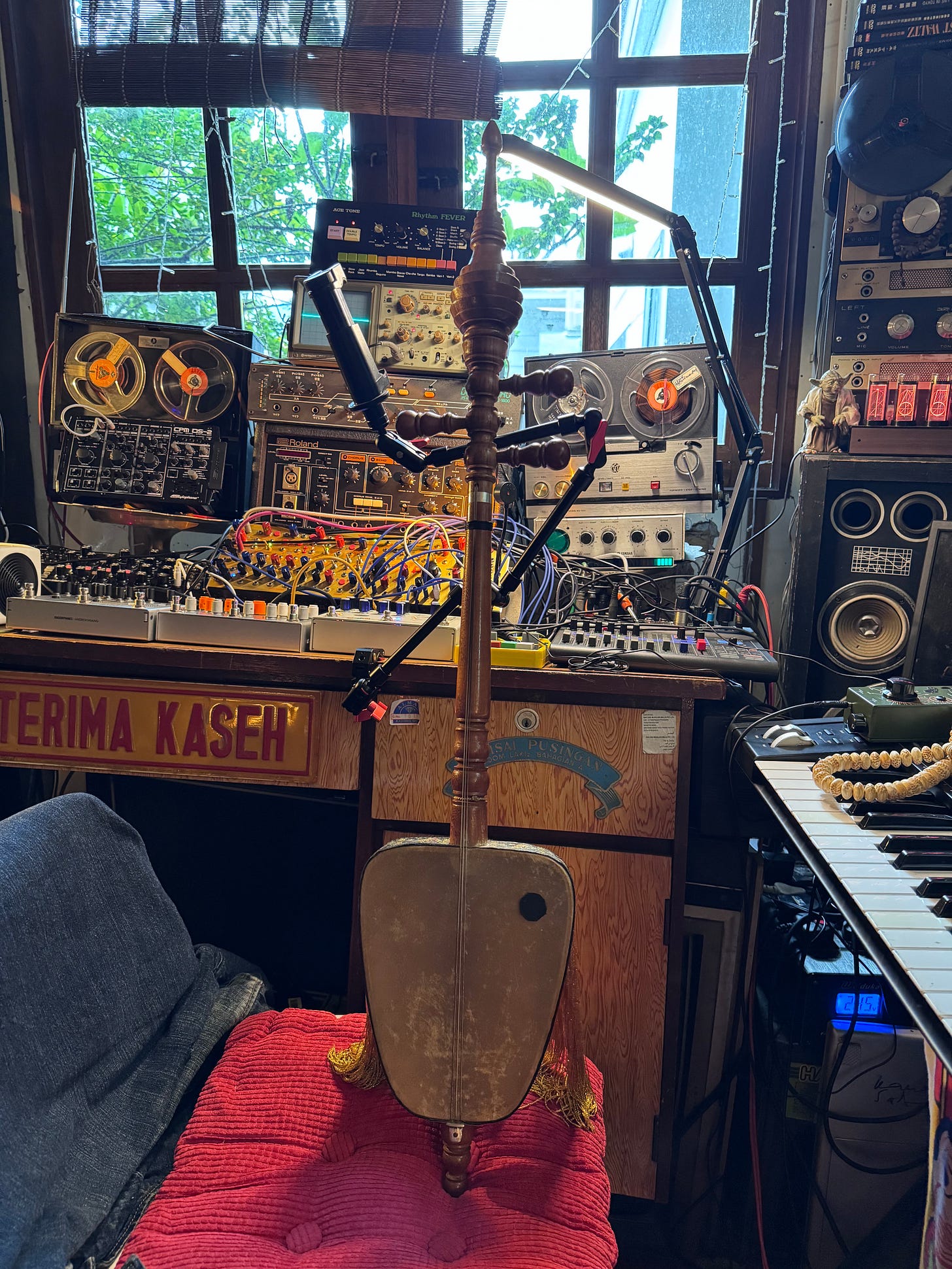Scoring Laknat: A Personal Reflection on Composing Fear, Grief, and Ghosts
I didn’t compose the Laknat score the way one writes a song.
I listened.
To silence.
To shadows.
To the spaces between the scenes.
This wasn’t about melody. This was about atmosphere.
About tension you could feel in your bones, even before the ghost arrived.
The music wasn’t meant to explain anything. It was meant to haunt.
THE INVITATION INTO DARKNESS
When I was first approached to score Laknat, I asked myself:
What does fear sound like in Malaysian context ?
Not Hollywood fear. Not violins stabbing in the dark.
But our fear—rooted in old stories, kampung nights, the memory of something watching you from the edge of the forest.
This wasn’t just a horror film. It was a psychological spiral, wrapped in folklore, grief, and a kind of possession that goes deeper than the supernatural.
My job wasn’t to scare.
My job was to disturb quietly.
To build a world where the audience doesn’t notice the music at first—but suddenly feels like the room got colder.
THE SOUND: TRADITIONAL INSTRUMENTS AS CHARACTERS
I knew from the beginning that the score needed to breathe with both history and disruption.
So I turned to instruments that carry centuries inside them:
Rebab: Its bending tones felt like a voice trying to remember a forgotten name. I played it slow, imperfect, like a ghost humming through broken teeth.
Gong: It marked not just time, but consequence. Every strike felt like the closing of a door you shouldn’t have opened.
Gendang: I used it not just for rhythm, but for heartbeat. Human, then not. Alive, then unsettling.
These weren’t background decorations.
These were characters.
Each one holding their own memories, echoing the inner lives of the film’s haunted people.
THE STRANGE MARRIAGE: ANALOG SYNTH + MYSTIC TEXTURE
I love working with analog synthesizers. Not for nostalgia, but for their unpredictability.
I let the machines breathe. Detuned them. Let static and hiss live in the sound.
This created a texture that felt like memory disintegrating.
When I blended these tones with traditional instruments, something strange happened:
The line between the ancient and the electronic blurred.
Suddenly, the gong sounded like a malfunctioning circuit.
The synths felt like an old prayer distorted by time.
That’s when I knew the score was working.
THE PROCESS: LISTENING BEFORE COMPOSING
I watched the film muted, again and again.
I wanted to know: where does the silence ache the most?
Those were the places I injected sound—not as music, but as presence.
I recorded outside.
Rain hitting zinc rooftops. Insects in abandoned houses. Electrical hums from old fans.
I wanted every sound to belong to the story’s world.
And sometimes… I’d record something and delete it right after.
Not because it was bad—
But because it felt too real.
This score wasn’t built in logic.
It was built in instinct.
In a kind of ritualized chaos.
WHAT EMOTIONS LIVED IN THE SOUND
If I had to name them:
Tension: Built with slow gendang pulses, just slightly off-grid. Like something following you, but never showing itself.
Grief: The rebab wept in detuned, decaying melodies. You don’t just hear it—you feel your stomach sink.
Supernatural presence: Synth drones barely audible, like tinnitus from another world. Sometimes, just enough to make you doubt your own hearing.
Guilt: Rhythms that start and never finish. Musical phrases that almost resolve—but pull away at the last moment. Like unfinished apologies.
LOOKING BACK:
If I had gone the clean, traditional path—perfect strings, polished melodies—it would’ve betrayed the story.
Laknat demanded something raw. Something uneasy.
A score that doesn’t comfort.
A score that lingers.
CLOSING REFLECTION
To score Laknat was to walk blindfolded into a familiar house, now filled with shadows.
I wasn’t writing music.
I was channeling the tension between the past and the present.
Between ritual and decay.
Between love… and the madness grief brings.
I believe in sound as medicine. As memory. As presence.
But in this film, I let sound become a haunting.
And if someone watches Laknat, and walks away not remembering a single melody—but feels a tightness in their chest when they think of that one scene…
Then the music did its job.
Not to be noticed.
But to never fully let go.
Kamal Sabran
Laknat Film Composer








